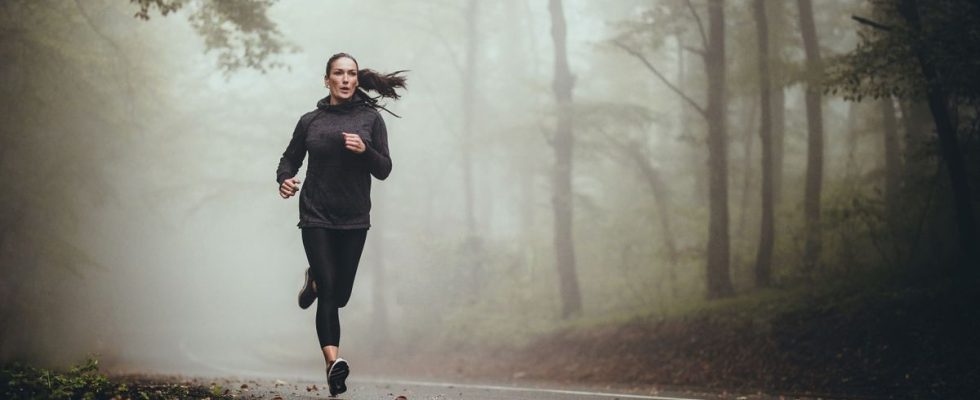Published on
Updated
Reading 3 min.
Equipping yourself to play sports, yes, but at what cost to the environment? Materials derived from petroleum, difficult to recycle… Pointed out by NGOs, sports equipment manufacturers play a balancing act between necessary technicality and environmental injunctions.
Looking for a hiking jacket in a Parisian Decathlon, Luna, 37, assures AFP to look at the labels and “pay attention to the composition“. Conversely, Alexis Tolentino, 60 years old and a running enthusiast, admits “especially pay attention to the price“.
In this he joins the majority of French consumers for whom “value for money” is the first criterion for purchasing outdoor sports equipment, according to an Ipsos study for the professional association Outdoor Sports Valley (OSV).
The sporting goods market in France was worth some 17 billion euros in 2022 and is “booming”, according to professionals interviewed by AFP.
Sports equipment: a significant environmental impact
However, when it comes to sports equipment, the environmental issues are particularly serious.
Their synthetic fibers, used for T-shirts or leggings for example (often polyester), are made from “oil, gas and coal“, explains Manon Richert of the NGO Zero Waste to AFP, and their washing rejects “a lot of microfibers in the environment, especially in the oceans“.
Also in the viewfinder, perfluorocarbons (PFC) which ensure the water repellency of clothing, known to be volatile and endocrine disruptors, recalled Ademe (Ecological Transition Agency) in 2021.
Other technical materials, such as the neoprene of wetsuits produced from petroleum or limestone, generate high CO2 emissions during their manufacture and mobilize non-renewable resources, according to the Agency.
Finally, very technical, sports equipment is difficult to recycle, “like those made of carbon composite material, or very intertwined multi-materials like skis, or walking poles“, according to Vanessa Montagne, director of New Sectors within the eco-organization EcoLogic.
Design differently, resell, relocate
This industrial headache is pushing certain brands to rethink their products, from design to end of life.
The sportswear brand Circle, for example, has designed a sneaker made from wood, wool and castor oil, i.e. “from biosourced and biodegradable materials“, entirely manufactured in Europe. It took three years to be finalized, the machines allowing “to inject air into a sole” only existing in Vietnam and China. Circle therefore had to convince partners to invest in such technology in Portugal, explains the founder of the brand Romain Trebuil.
Relocation (which avoids costly transport in environmental terms) but also production via renewable energies are part of the battle plan of Outdoor Sports Valley (OSV), which brings together most outdoor sports companies. For spandex and polyester, “we switched to recycled” almost sure “the entire market“, “even if we stay on oil sources“, admits President Cédric Georges.
“Brands are also interested in sustainability, because the technicality is not always there for recycled materials“, adds Céline Brunel, the director of OSV.
Good in his body, good in his head!
Second-hand goods appeal to thrifty and eco-sports enthusiasts
An effort also noted by Greg Cottret, founder of the second-hand platform Sporteed and who practices running: “Before, with a pair of sneakers, we covered 200/300 kilometers before having to change them, now it’s more like 800“.
The entrepreneur had a click when he counted in his closets some 200 “finisher” T-shirts, jerseys given as gifts at the end of a race, “which were of no use“. “I said to myself : “It’s not possible, athletes must have something“, a place to resell their equipment.
He launched Sporteed in 2021 and it worked: today, his platform can boast some 125,000 subscribers. If there is a “small ecological side”, the entrepreneur is not fooled: “inflation also plays a role” in the choice of second-hand goods among consumers, more and more of whom practice a sporting activity.
